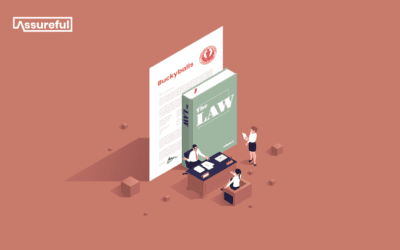NBA star Francisco Garcia and the Sacramento Kings took on the Italian manufacturer of the balancing ball that put Garcia on the sidelines for most of an NBA season – and won.
In this case study, we’ll explore what happened, the results of the case, and the lessons we can all learn as eCommerce sellers.

The Incident that Sparked a Lawsuit
In 2009, Garcia was balancing on an exercise ball while lifting weights when the ball burst, throwing him to the ground and landing him with a fractured arm, among other injuries.
Having just signed a 5-year contract extension with the Sacramento Kings – worth an estimated $30 million – Garcia’s career took a hit. The injury forced him to miss a significant portion of the NBA season – only managed to play 25 games.
As a result, both Garcia and the Kings took legal action against Ledraplastic, citing a breach of the manufacturer’s warranty.
The lawsuit hinged on the fact that the exercise ball was advertised as having a “600-pound capacity” and being “burst resistant”.
Garcia managed to burst the ball with a combined weight much lower than the manufacturer claimed was safe, raising questions about the product’s integrity and the accuracy of the manufacturer’s claims.
Not only that, Garcia’s complaint cited several similar incidents that had already occurred and that Ledraplastic was aware of.
The crux of the case – Ledraplastic knew that their product wasn’t performing as they claimed and didn’t include sufficient warning about proper use with their product.

The Result of the Lawsuit
While the Sacramento Kings sought reimbursement for the salary they’d paid to Garcia during his recovery period, Garcia sued for damages due to pain and suffering, on top of the loss of future earnings due to not fully recovering from the injury.
The terms of the final settlement between Garcia, the Kings, and Ledraplastic remain private. But considering the substantial salaries of NBA players, it’s likely that Ledraplastic had to pay out a significant sum to settle the lawsuit and the attorney who represented both Garcia and the Kings described the settlement terms as “favorable” for his clients.
Aside from the financial repercussions, Ledraplastic faced multiple other consequences:
- Clear Warnings: They must ensure the product includes proper warnings that the exercise ball is not fit to be used whilst lifting weights. Clear and accurate marketing materials and warning labels should be a non-negotiable for eCommerce sellers but often, liability exposure isn’t top of mind when the #1 goal is to drive more sales.
- Reputational Damage: The damage to a brand when an incident like this happens is unquantifiable. The fact that the lawsuit was raised by such high-profile figures only compounds the potential long-term negative effects.
- Reluctant Distribution Partners: The high-profile nature of the lawsuit led to some distributors choosing to no longer stock the balancing balls, no doubt leading to loss of earnings for the brand – a clear reflection of the impact a lawsuit can have on a brand’s reputation.
What can we learn from this as eCommerce sellers?
The ripple effects of a single product liability case can be huge. What seems like a harmless oversight in your marketing claims could have a real impact on the lives of customers and the longevity of your brand.
Product liability cases can typically be broken down into three categories and we all need to be vigilant and stringent with how we approach preventing any type of liability.
- Design: Flaws in the fundamental design of the product that make it inherently dangerous or defective.
- Marketing: Failure to provide adequate instructions or warnings about product risks, or making misleading claims about its use or safety.
- Manufacturing: Defects that occur during the production or assembly of the product.

In the case of Garcia v. Ledraplastic, the liability falls under the marketing category due to the inaccurate and misleading claims they made about the exercise ball’s weight capacity and ‘burst resistance’.
So, how can sellers prevent these incidents?
The answer lies in thorough product testing and honest marketing materials including your product listings, packaging, instruction manuals, and warning labels. It’s essential to ensure that your product lives up to the claims you make and meets all regulatory standards.
This case underscores just how important accurate marketing messages, comprehensive product testing, and adequate insurance coverage are for product businesses.
We delve into these three categories and key ways to prevent these liability risks in our post on types of product liability.
Want to read about more product liability cases?
- Buckyballs
- The McDonald’s hot coffee lawsuit
- The Hoverboard craze
- 3 famous product liability lawsuits
- Bullock v. Phillip Morris
Adequate Insurance: The Safety Net You Hope to Never Land On
if you ever find yourself in a situation where your business requires protection from bodily injury or property damage claims due to your product.
What happens if your business gets caught up in a product liability case? While it might be easy to brush off this case study as a fluke, what if harm came to one of your customers due to your product?
Maintaining adequate general liability insurance as an eCommerce business is absolutely crucial to staying protected in the face of a product liability lawsuit.
At Assureful, we specialize in providing comprehensive and affordable insurance tailored for eCommerce businesses. Whether you’re a small start-up or an established online retailer, we can help you protect your business, your brand, and your bottom line.
Don’t let unforeseen incidents harm your business.
Sign up to receive a free quote for pay-monthly eCommerce insurance today.
No obligation quote.
Policies can be canceled at any time, with 30 days’ notice.




0 Comments